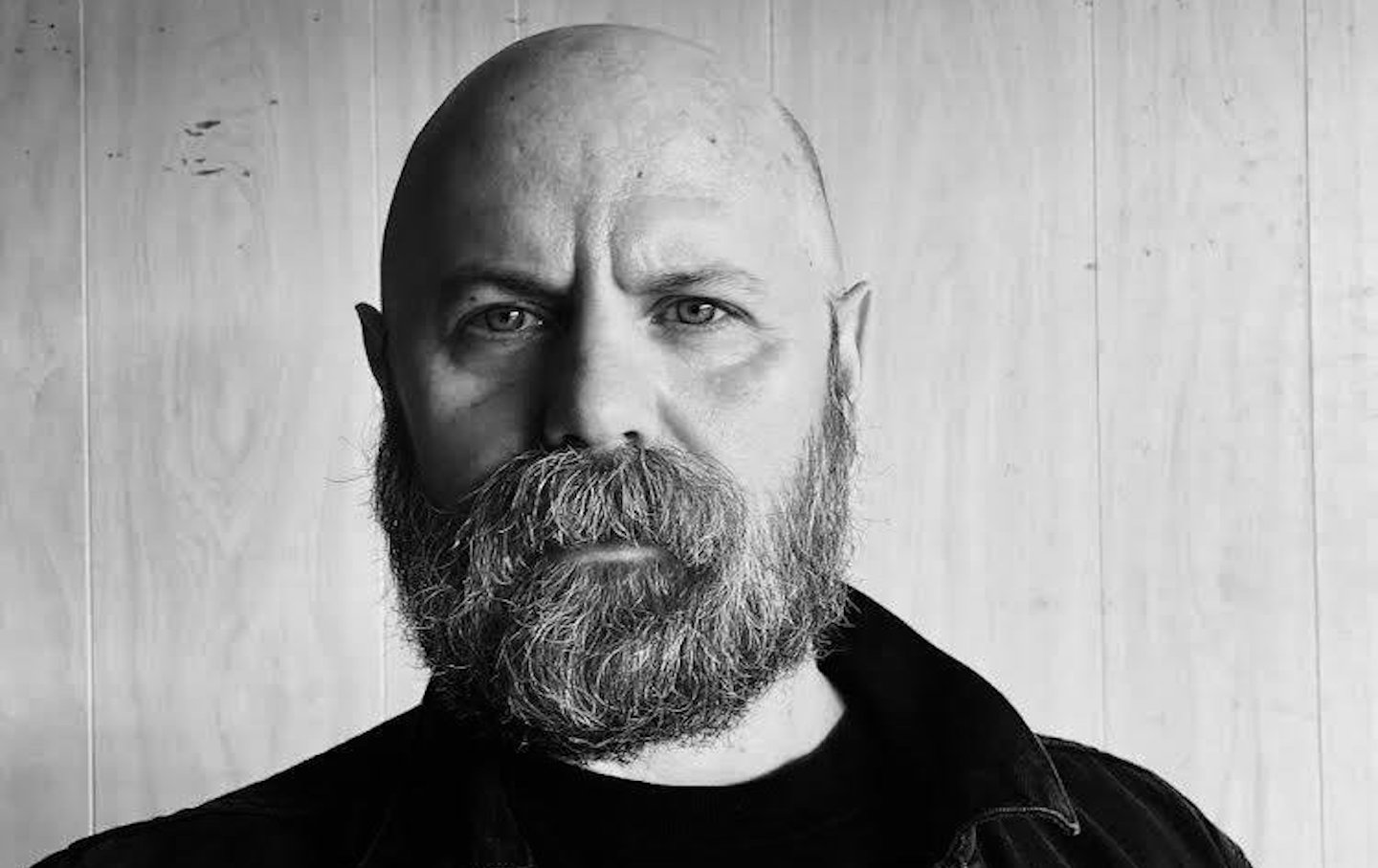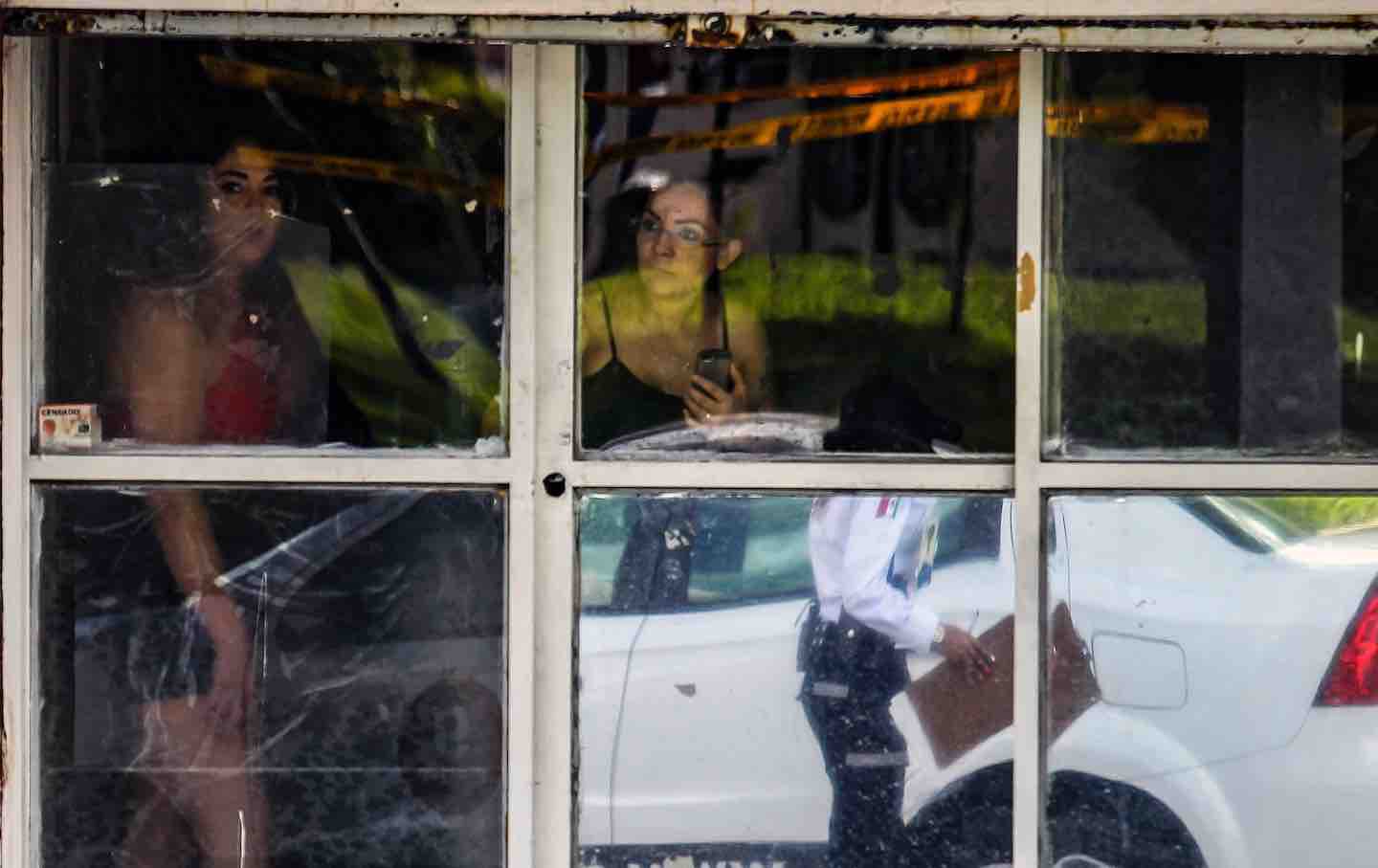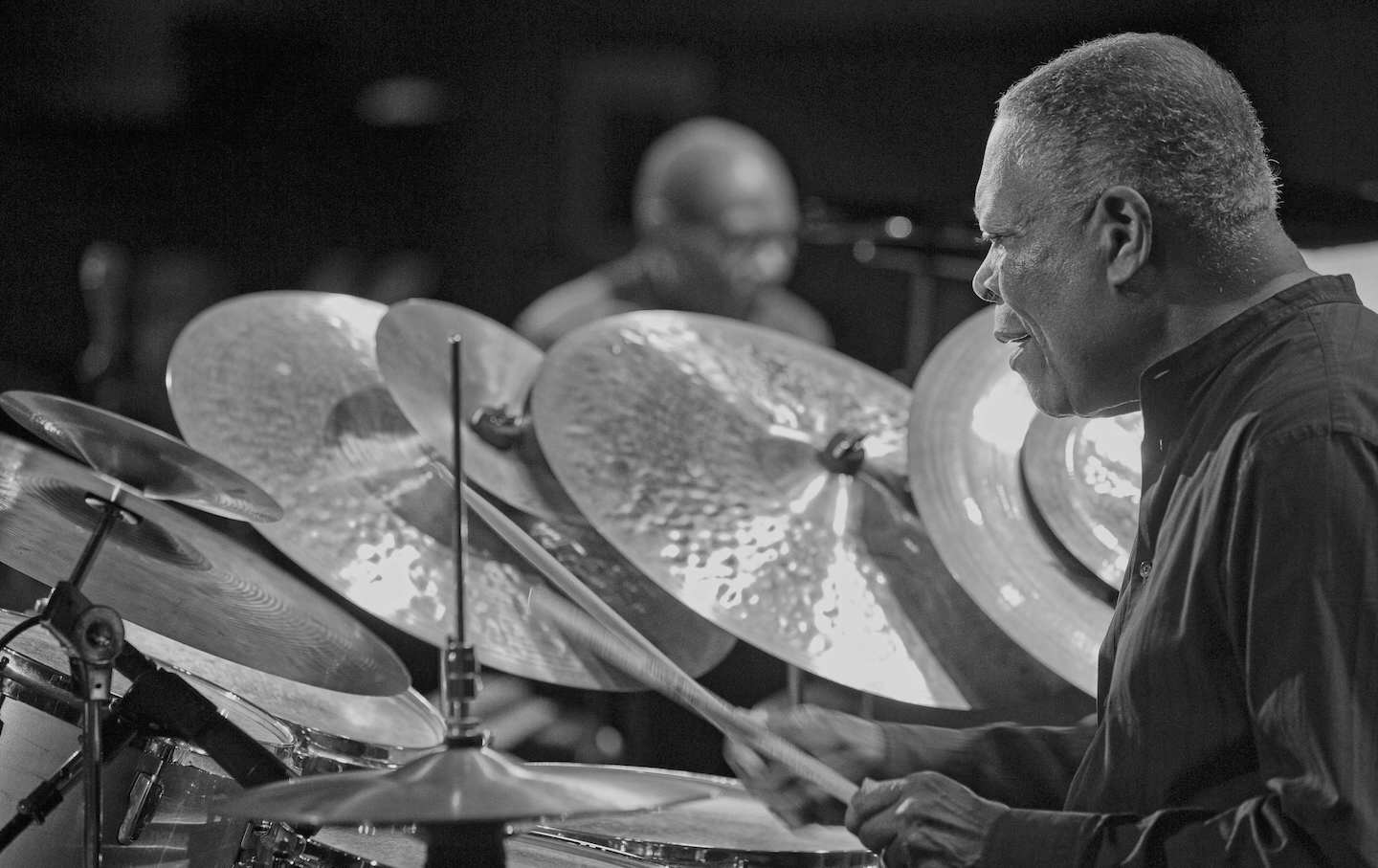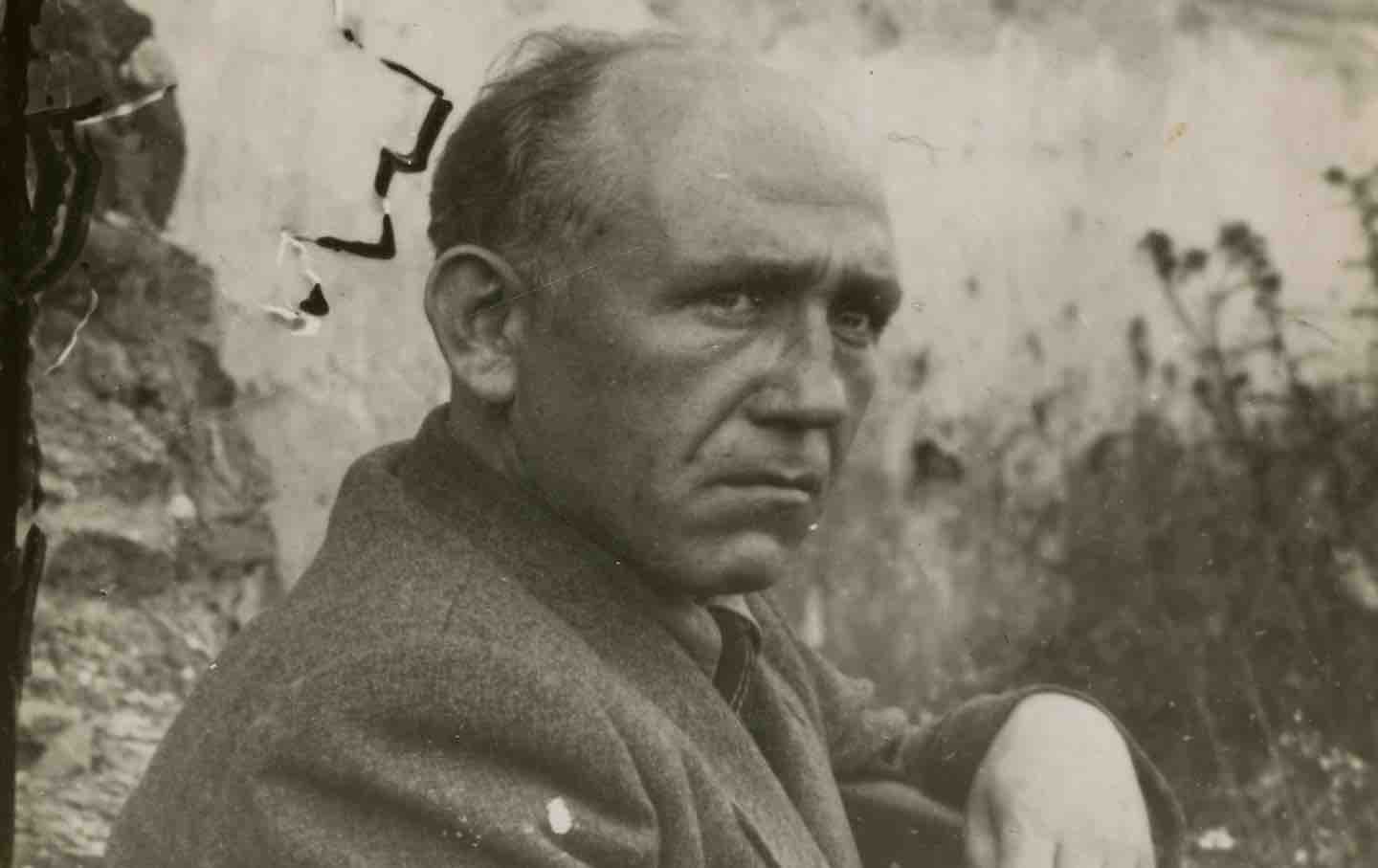The Fragmented Lives of Nate Lippens

Books & the Arts
/
July 15, 2025
His bracing novels represent an honest reckoning with the post-AIDS era and its effect on life and imagination.

In Wisconsin, a middle-aged man lies awake at night, haunted by memories of his dead friends. The friends were similar to him: working-class queers with histories of abandonment and abuse. While the causes of their deaths varied—AIDS, suicide, overdose, or a combination of the three—each could be traced to an inequity born of homophobia and societal neglect. “I want to be wrong. Wrong in a new way,” says the unnamed narrator of Nate Lippens’s 2021 debut, My Dead Book, after learning of yet another friend’s overdose and death. Life, as he knows it, has yet to prove him wrong.
My Dead Book established Lippens as a preeminent queer pessimist, a term that signals an eschewal of liberal, representation-focused LGBTQ life for a politics of refusal grounded in the negative emotions (shame, melancholy, and ambivalence) of the closet. Offering a different strain of politics than is normally encountered in popular gay fiction, My Dead Book not only rejects the desires associated with the respectable white, gay, and male middle class but insists on an allegiance with the world’s misfits: sex workers, drug users, and the mentally ill. Embracing pessimism, the narrator turns negativity into the tenor of his life and uses gallows humor as its vehicle; in his hands, the early 1980s (when AIDS was an irrevocable death sentence) are dubbed the “avant-garde of the plague years,” and a dying man throwing a goodbye party is as “happy as a motherfucker at a PTA meeting.” Even My Dead Book’s initial publication design—on red cardstock, with a nonstandard trim size of approximately 4.5 by 6.5 inches—has a whiff of the subversive: One can view it as a morbid riff on the romantic “black book” of lovers” or as the book’s original publisher notes, an “homage” to Olympia Press, a publisher of transgressive fiction in the 1970s, such as Lolita and Naked Lunch.
Despite its limited distribution, My Dead Book found a loyal audience. With his sardonic wit and fatalistic outlook, Lippens’s narrator aptly captures the disillusionment of the Gen Xers who matured in the late 1980s and early ’90s—after the advent of AIDS but before the introduction of life-saving retrovirals—and for whom the marriage of homosexuality and AIDS bred an uncertain attachment to life. (My copy of My Dead Book was gifted to me after a round of casual sex with R., a writer friend in his mid-40s. As I protested the gift, R. confided that he buys several copies of the novel at a time just to hand them out to friends.) Last year, Semiotext(e) republished My Dead Book, with an introduction by Eileen Myles, alongside a new novel by Lippens, Ripcord.
Ripcord continues the literary project of My Dead Book. Both novels are written in a fragmented first-person style, and although the unnamed narrators are technically different, they share a cynical worldview and a set of identity categories: white, working-class, and with pasts of addiction and sex work. Humor, too, is one of Ripcord’s defining features—the book opens with the unforgettable first lines “Some people get the glory. Some people get the glory hole”—and the narrator similarly utilizes it as a coping mechanism. Finally, both novels question how far negativity and fragmentation can take a reader before the narrative thread dissolves, with each examining a method of enduring a psychically shattered life. For the narrator of My Dead Book, that means staging a confrontation with memory; for Ripcord’s, it’s evaluating transience as a mode of survival.
My Dead Book is a novel deeply suspicious of linear storytelling and the emotional arcs typically associated with it. In place of a traditional plot structure, the narrative propellant is the collaging of vignettes—which vary in length from several pages to acerbic one-liners—that alternate between the narrator’s memories of his sex work, drug use, and homelessness and his present-day reflections on them. Rather than building toward a dramatic denouement, the vignettes create a reading atmosphere of varying emotional intensities, which Lippens expertly dials up (with harrowing stories of abuse or prolonged death) or down (with comedy). One memory, a description of a friend’s house, can be read as a metaphor for the novel’s structure:
Current Issue

Televisions were on. One in the kitchen, one in the living room, one in the bedroom. Different movies on each one. Moving between rooms, they became one long, jumbled film. Locations shifted, characters vanished never to reappear again. Meaningless, badly edited, bombastic music. Tension simply dissipated, nothing more.
What, for the narrator, makes this an “accurate representation of life”? The narrator argues that life is fundamentally fragmented, even if one follows the normative plot points of getting a job, getting married, buying a house, and having children. Stability, the seamless transition between the culturally accepted milestones of life, a general lack of friction or emotional complexity—these are all artifice. Life, in reality, is full of false starts and stops; packing up and moving; uncertainty. What distinguishes those who do and don’t ascertain this truth is the ability to create the illusion of linear progression.
What’s notable about My Dead Book is its emphasis on the intimate scale of capitalism, how its demands shape our relationships and limit what we imagine is possible in our lives. One of the narrator’s recurring (and living) gay friends is Denny, who is the same age as the narrator and who has married, purchased a home, and become a parent (through adoption). Denny functions as a stand-in for a type of upper-middle-class gay man who lacks class consciousness. “Don’t let money stop you,” he tells the narrator. “Don’t let it rule your decisions.” Another time, without a hint of irony, he tells the narrator that “anything can happen.” What wisdom to dole out to someone getting by waiting on tables!
Denny’s absurd obliviousness lends his scenes a comedic relief, but more importantly it demonstrates the narrator’s own understanding that capitalism doesn’t just limit what’s feasible but informs fundamental assumptions about autonomy and choice—assumptions that Denny takes for granted. Without money to smooth the rough edges, life becomes a series of jagged fragments one must piece together to create a cohesive narrative.
The fragmentation in My Dead Book also extends beyond the individual to encompass the historical. This is achieved through the characters of Rudy and Brandon, both of whom offer versions of queer life the narrator narrowly missed. Rudy, an older queen and famous photographer of pre-AIDS life in downtown Manhattan, chastises the narrator for his nostalgia for a time before AIDS. On the other hand, Brandon, a millennial, hangs out with the narrator because he “wants to know what is wrong with older men.” Brandon and his friends talk about PrEP, Grindr, and middle-class achievements as a given; for them, AIDS is history.
What Rudy and Brandon don’t grasp is that they each represent well-defined epochs within the historical arc of 20th- and 21st-century gay life, while the narrator and his generation were born with the sense of having arrived out of time and into a place where death is the only horizon. Worn down by a punishing life, the narrator understands that an attachment to living is not a given but must be cultivated; the belief that one must remain alive at all costs does not appeal to him. However pessimistic this outlooks registers, it would be a mistake to categorize it as an individual pathology or a particular experience of suicidal ideation. Rather, it’s grounded in his and his friends’ experiences, a tangle of narratives that has produced a singular truth: Staying alive to face recurring traumas, both personal and structural, is not a task all are equipped for.
In this way, My Dead Book is a novel about the long arc of the AIDS epidemic and an attempt to grapple with the psychic weight of that history. The narrator’s simultaneous experience of the past and present puts pressure on the cultural obligation to “move on” and “get over” the losses from AIDS, and the fragmented style of the novel complements the narrator’s condition; we are also stuck in the “ruins” that inhabit his mind. By encouraging a slippage between tenses, Lippens forces readers to consider the ongoingness of the epidemic, to extend our timelines and periodization, and to ask: Are the suicides and overdoses of the narrator’s friends also not deaths from the epidemic’s long-term devastation?
Ripcord doesn’t share My Dead Book’s focus on memory, but AIDS is nonetheless a structuring force in its narrator’s life. “The period was suffused with sickness, and not just illness but the immorality of politicians, preachers, and healers…. How do you heal after that?” he asks. The question might be rhetorical, but the narrator’s life provides one answer.
Popular
“swipe left below to view more authors”Swipe →
Written in the present tense, Ripcord is structured in vignettes with a roughly chronological timeline. Living in Milwaukee, the narrator is a bartender and part-time waiter. His two closest friends—Greer, a lesbian painter, and Charlie, an aging gay male writer—struggle with thwarted ambitions and creative output. (We get the sense that the narrator is a writer, but this is never confirmed.) Dustin, his primary lover, is a younger married man who has yet to tell his husband about his dalliance with the narrator.
These relationships form the backdrop to the tension running throughout the novel: the question of whether to leave Milwaukee or stay. Ripcord’s narrator is fascinated by escape and the possibilities it holds, and the novel unfolds like a diary of stasis, describing the experience of piecing together a life out of constant movement. (The narrator’s mantra: “Leave no forwarding address.”) Reduced to their emotional components, staying and leaving are stand-ins for the tug-and-pull between the narrator’s inclination to give in to despair and his dogged persistence to preserve his life.
The narrator explicitly evaluates this cut-and-run disposition as a mode of organizing a scattershot life: “How fragmented is too fragmented? Is there such a thing?” he dryly asks. The problem is that while Ripcord’s narrator might feel fragmented, this doesn’t always translate into a form that can sustain a novel. This formal strategy lends emotional texture to the narrator’s feeling of being adrift in place, but the same cannot be said for generating urgency around his desire to escape. By taking such a diffuse and dispersed approach to its narrative, the novel at times resembles a series of aphorisms from a depressed gay guy rather than a complex narrative weave.
Despite its limitations, Ripcord is nonetheless an astonishing feat of emotional acuity and an excellent demonstration of the lengths one will go to escape. Throughout the novel, the narrator repeats a theory of the self: What constitutes a person is neither their beliefs nor their one-off actions but their repetitions and habits—in other words, the human as automaton. Applying this theory to the narrator, the reader senses that leaving isn’t always his best option, but one he chooses because it’s worked before. Embedded within habit, the decision to leave is always already made and therefore removed from emotional difficulty.
To ease his inevitable leaving, the narrator culls his belongings to cultivate a sense of detachment. “Every year, I decide something—a record, a book, a sweater—is heavy with bad memories and sell it. Make room for the good.” This seems reasonable. And yet the following sentence contradicts that sentiment: “Inevitably I crave a song or a story or the comfort of the worn sweater and they aren’t there.” Which is it? Are the items cursed objects or talismans? Of course, emotion is not so neatly divided, and objects can hold both love and terror. But the narrator’s inconsistency points to the larger workings of the self-deception that’s layered over the decision to leave or stay. Selling your belongings—and then self-protectively casting those items as accursed—feels a lot like choosing what hurts you now to avoid emotional exposure in the future.
What is it that the narrator truly seeks? One answer is anonymity. There’s a sound logic to this desire: If the ultimate escape (death) remains off the table, the next best alternative is to escape yourself. And what better way to do so than sex?
Discussing a homemade glory hole, the narrator asserts that the “allure of anonymous sex isn’t the fantasy, the hunt, the capture,” but rather that “to lose yourself, shed your identity and thoughts, and be a series of motions and sensations is the glory.” Anonymous sex becomes the place where the narrator can both stay and leave: The physical body remains, the persona is shed, and sensation reigns. As a result, fragmentation takes on a different valence; instead of representing a life shattered by trauma, it facilitates the narrator’s desire to escape legibility. Of course, the negativity associated with fragmentation doesn’t disappear completely—after the encounter, the narrator still exists within his body, stuck in Milwaukee—but it’s nonetheless reengineered, even if only momentarily, as recuperative. For a narrator who ridicules neat narratives of healing or triumph, this mediation offers a crucial escape route within fragmentation, and a way to turn brokenness into something less cutting.
My Dead Book ends with the lines “I’m alive. Of course I’m alive,” a stumbling yet startling realization for a narrator who previously categorized himself as neither living nor dead. While not providing full catharsis, the ending implies the narrator’s recognition that one cannot live forever in memory and that life, with its small joys and large disappointments, continues on—and him with it.
Ripcord ends on a similarly energized moment, but the emotional register is markedly different. After spending the novel delaying, the narrator is finally ready to pack up, hit the road, and escape. It’s not an emotional acceptance of existential conditions, but something still real, even in its ambivalence. “I make bad decisions and stick with them. Loyalty to poor judgment is one of my most pronounced character traits,” Ripcord’s narrator tells us on the second page. And stick with it he does.
If My Dead Book and Ripcord teach us anything, perhaps it’s this: Asserting the fractured nature of life can, ironically, keep you alive. At the same time, I’m reminded of a criticism Dustin has of a novel that the narrator of Ripcord recommends: “Where’s the redemption?” For our narrators, redemption may be out of the question, but after the arc of My Dead Book, the indecision of Ripcord is notable. “Isn’t it enough to still be alive and more or less intact?… Not dead, not dead inside, still moving?” Ripcord’s narrator asks. To which I say: By all means, let him be wrong. But let him be wrong in a new way.
More from The Nation

In Death Takes Me, an intellectual murder mystery, the Mexican author looks at the overlap between acts of interpretation and acts of violence.
Andrea Penman-Lomeli

From the Cold War till Donald Trump, there’s always been a special dispensation for hawkish bigots.
Jeet Heer

Our art critic visits the Smithsonian American Art Museum to get a closer look at the Trump administration’s attack on DC arts institutions.
Books & the Arts
/
Barry Schwabsky

The legendary jazz drummer played with Herbie Hancock, Miles Davis, and Stan Getz. His new memoir tells all—and lays out his own philosophy.
Billy Hart

The Yiddish writer’s lost masterpiece, Sons and Daughters, brought back to life, in all its humor and beauty, the Jewish shtetl of his youth.
Lily Meyer


